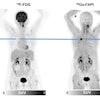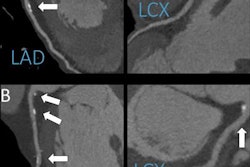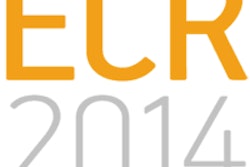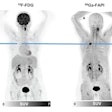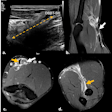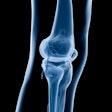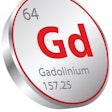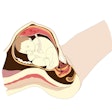
Validating the advice of your health food store clerk (and possibly your Italian grandmother), a new study in the Annals of Oncology has found that the Mediterranean diet -- or at least several components of it -- are associated with significant reductions in the incidence of lung cancer in thousands of CT screening subjects.
In a study of more than 4,000 asymptomatic screening subjects with long smoking histories over a period of nearly six years, the study team from Milan and Florence, Italy found lung cancer rates were higher when smokers and ex-smokers ate a lot of red meat -- but fell significantly when they consumed more olive oil, red wine, tea, and some other components of the Mediterranean diet.
"We found that a diet rich in fruits and vegetables, with olive oil as the main source of fat, a moderate consumption of wine, and a low consumption of red meat, were responsible for the risk reduction," wrote Dr. Patrizia Gnagnarella from the University of Milan, and colleagues, from the Cancer Research and Prevention Institute (ISPO) in Florence (Ann Oncol, August 18, 2013).
The optimal diet?
The Mediterranean diet has long been considered the optimal diet for improved health, longer lifespan, and reduced cancer risk, due to its healthy portions of fatty acids and antioxidants including polyphenolic compounds, carotenoids, and tocophorols that are found in fruits and vegetables, the researchers wrote. A recent meta-analysis found a Mediterranean diet reduces overall mortality and cancer incidence -- an inverse association that a recent European study found was even stronger for smoking-related cancers.
"Certainly, the effect is not due to single nutrients, but to a complex of components having synergistic and antagonistic interactions," Gnagnarella and colleagues wrote. The goal of the current study was to evaluate whether consumption of specific food items and food groups, as well as adherence to a Mediterranean diet, are associated with lung cancer risk in a population receiving CT lung screening.
The study was based on the Continuous Observation of Smoking Subjects (COSMOS) study, a screening program for early lung cancer diagnosis of lung cancer in high-risk individuals using annual low-dose CT (LDCT). In 2004 and 2005, more than 5,000 volunteers age 50 and older were screened annually with CT and completed survey information on their diet via the validated Food Frequency Questionnaire, which assessed the frequency of consumption of 188 different items and beverages.
For each study participant, the alternate Mediterranean diet (aMED) score was developed that added a point for fruits, nuts, cereals, legumes, or fish, and added no points for other foods. Red and processed meat consumption led to the deduction of one point. Moderate alcohol consumption added a point that disappeared for larger amounts. By design, the scores ranged from 0 to 9.
The authors used information on daily intake of select foods and beverages to calculate aMED scores, and plotted incidence rates of lung cancer according to quartiles of food group consumption. The researchers also calculated baseline probabilities for each individual based on age, sex, smoking history, quantity and duration, years since smoking cessation if applicable, and asbestos exposure. Alternate models added additional variables such as education. For simplicity's sake, results were expressed in quartiles, with the highest-consuming individuals of an item assigned to the fourth quartile (Q4), and the lowest-consuming individuals to the first quartile (Q1).
During a mean screening period of 5.7 years, lung cancer was diagnosed in 178 of 4,336 participants (mean age 57 years, 66.1% men). Eighty percent of participants were current smokers. Multivariable analysis showed red meat consumption was associated with an increased cancer risk (Q4 versus Q1, hazard ratio [HR] 1.73).
Diet leads to lower cancer risk
"The results ... suggest that high adherence to a Mediterranean diet in the year preceding enrollment was associated with a lower detection of lung cancers among asymptomatic Italian heavy smokers undergoing annual LDCT screening," Gnagnarella and colleagues wrote.
High red-meat consumption was associated with a higher lung cancer risk, after adjustments. "Excess risk was observed for beef, veal, and offal, but not pork or white meat," the authors wrote.
Meanwhile, tea consumption (one or more cup per day) was associated with a lower risk of cancer, with a hazard ratio of 0.56.
"We found a significant reduction of lung cancer among participants drinking tea daily," Gnagnarella et al wrote. "Tea polyphenols, mainly contained in green tea, may have an inhibitory effect on tumorogenesis. Black tea is the main form consumed in Italy, and a meta-analysis reported possible lung cancer risk reduction with black tea consumption. In a Californian study, tea was associated with a significant decreased lung cancer risk specifically among smokers."
Still, the quantities consumed could not be made precise, as the dividing line was zero cups or one or more cups, and the tea blend, manufacturing practices, and methods of beverage preparation all influence polyphenol content of tea, they noted.
As for alcohol, associations in the literature have been found to be complex and sometimes conflicting, depending on gender, age, smoking history, and the type of alcohol, and suggest the detrimental effects of heavy alcohol consumption outweigh the antioxidant benefits at low doses.
The literature shows only minor evidence of an association between olive oil and lung cancer risk, mainly due to its being consumed mostly in the Mediterranean countries where it represents the primary source of dietary fat. A previous meta-analysis has reported a protective effect of olive oil consumption on overall health, they wrote.
"We also found an inverse association [of lung cancer] with modest wine consumption, but the association was of borderline statistical significance at multivariable analysis," the study team reported.
Novel study
The study's strengths include its place as the first to examine the relation between diet and lung cancer risk in patients undergoing annual low-dose CT lung cancer screening.
"The role of diet on lung cancer risk is particularly important in this setting, as it could help lead to a better identification and stratification of individuals amenable to screening, being integrated in current risk assessment tools," Gnagnarella and her team wrote. "Subjects undergoing lung cancer screening are also often invited to participate in smoking cessation programs, but no particular attention is made to their diet. Our findings could, therefore, help in defining nutritional recommendations for smokers interested in cancer prevention."
The well-defined population of asymptomatic heavy smokers is another strength of the study, as well as its strict follow-up protocols, they noted. On the downside, the number of lung cancers diagnosed was relatively small, limiting the statistical power of the study. In addition, they wrote, dietary information was recorded for only the previous year before screening, while the latency period for cancer suggests the relevant exposure period may have passed years earlier. The food frequency questionnaire is also imprecise, particularly with regard to meat consumption.
"In its recent lung cancer screening guidelines, the American Cancer Society, however, reported that smoking cessation counseling remains a high priority and that screening should not be viewed as an alternative to smoking cessation," Gnagnarella and colleagues concluded. "Findings from our study add further evidence that diet also modulates lung cancer risk in high-risk populations and suggests that current or former heavy smokers should increase vegetable and fruit consumption, preferring olive oil and reducing red meat consumption, and moderate their consumption of wine."

